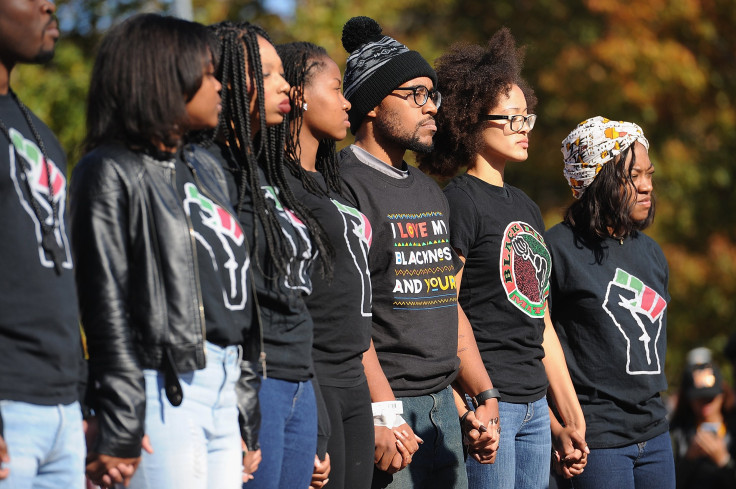Claremont McKenna College Dean Resigns After Racial Bias Protests Rock Campus

The dean of students at Southern California’s Claremont McKenna College announced her resignation Thursday, following protests on campus claiming her office was not doing enough to address students' concerns about racial discrimination. Mary Spellman’s resignation comes after hunger strikes by two students and protests, after she responded to a college newspaper article by saying she would work to serve those who “don’t fit our CMC mold.”
Spellman later apologized for her comments, which added to the discontent among the college's students who have made several demands for greater diversity among the faculty and for more funding for multicultural services, the Los Angeles Times reported. Spellman’s resignation is the latest from an university official triggered by allegations of on-campus discrimination, coming days after Tim Wolfe stepped down as president of the University of Missouri.
"I believe it is the best way to gain closure of a controversy that has divided the student body," Spellman, said, according to the Associated Press (AP), adding: "I hope this will help enable a truly thoughtful, civil and productive discussion about the very real issues of diversity and inclusion facing Claremont McKenna, higher education and other institutions across our society."
According to AP, racial tensions on campus were heightened following the appearance of a photo on social media where women were shown wearing false mustaches, sombreros, ponchos and holding maracas, during a Halloween party.
In April, nearly 30 students at the college reportedly wrote to the president, Hiram E. Chodosh, saying that they felt excluded, isolated and intimidated. The students also suggested several ways to address these issues -- creating a resource center, raising more funds for multicultural clubs, greater diversity in hiring, a mentoring program and an administrator to oversee diversity, the AP reported, adding that the students said these requests were not considered.
Chodosh announced Wednesday that the college would create new leadership positions in the offices of academic and student affairs to ensure more diversity and inclusion on campus, the LA Times reported, adding that the administration would also arrange a new space to allow more work on identity, free speech and diversity.
Last year, the college had 1,325 students, including 57 African-Americans, 180 Hispanics and 137 Asians, AP reported.
"I stand by our students," Chodosh wrote in a letter to the campus community, cited by the LA Times, adding: "I support their right to speak out forcefully, and want their voices to be heard."
© Copyright IBTimes 2024. All rights reserved.












